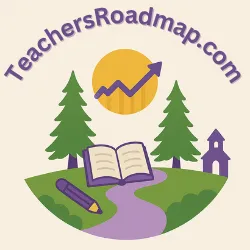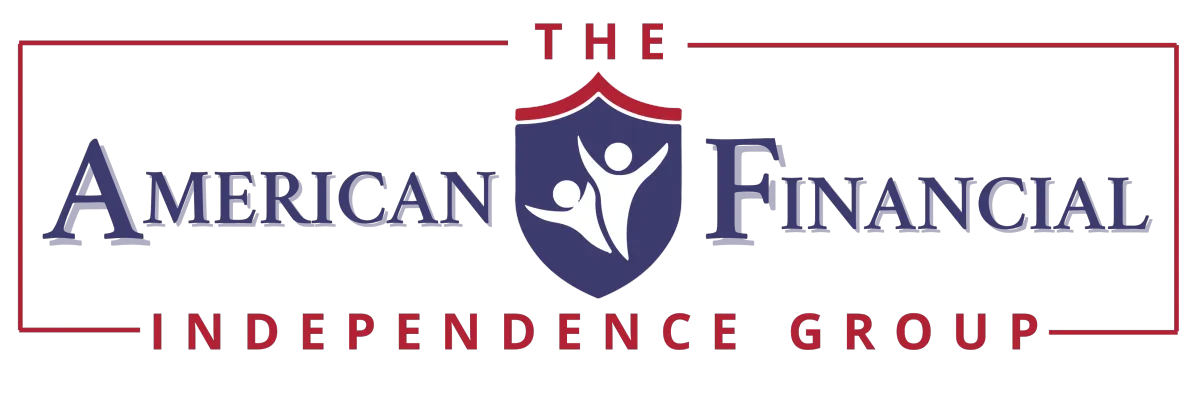
BLOG, ARTICLES, & RESOURCES
Here's to growing together!

Don’t Forget These 7 Essentials When Retiring, Part One
Don’t Forget These 7 Essentials When Retiring, Part One
Spring - a time of renewal, new beginnings, and for some educators, time to fill out retirement paperwork!
Retirement— a time to enjoy the fruits of your labor, explore new horizons, and embrace the freedom you’ve earned. As a former teacher now turned financial planner, I understand the unique challenges educators face. Here is Part One of the 7 Essentials I believe you need to make the transition successfully.
1. Have a Dream
Many of us spend our time thinking about what we’re going to do when we’re not in education anymore. Do you have a clear plan for yourself? Retirement isn’t just about financial planning; it’s about envisioning the life you want to lead. As you bid farewell to the classroom, take time to dream about your retirement years. What activities will bring you joy? Do you see yourself:
Traveling: Perhaps you’ve always wanted to explore distant lands, immerse yourself in different cultures, or hike the Inca Trail to Machu Picchu.
Volunteering: Giving back to your community or supporting causes close to your heart.
Quality Time with Family: Cherish moments with loved ones—whether it’s playing with grandchildren, sharing stories with your children, or reconnecting with old friends.
Having a clear vision will guide your financial decisions. Just as you set goals while you were working, you’ll still want to set goals for your retirement. Where do you want to be in 5 years? Who do want to be with? What do you want to be doing? Your dreams are the compass that point you toward a purposeful life.
2. Be Realistic About Expenses
Where you spend your money will change after you leave working. In some areas, expenses will go down - you won’t have to commute daily to school, and you won’t need to splurge on extra classroom supplies. But, there are other expenses that tend to increase as you age, so you want to keep an eye out for these:
Healthcare Costs: As you age, healthcare becomes more critical. Factor in insurance premiums, medications, and potential long-term care expenses.
Leisure Activities: Whether it’s golf, gardening, or attending cultural events, allocate funds for activities that enrich your life.
Unexpected Emergencies: Life throws curveballs. Having an emergency fund ensures you’re prepared for unforeseen events.
Also, be realistic about your spending habits to help you allocate your retirement savings wisely.
3. Know Your Pension
Public School educators take part in Defined Benefit, or Pension plans. Each state administers their own plans, and benefits will vary. The benefit of these plans is you are guaranteed a benefit you can’t outlive. If you’re married, you can have the benefit last through your spouse's life, also. Make sure you know:
Vesting Periods: Know when your pension benefits become fully vested. Some plans require a certain number of years of service.
Payout Options: Explore your choices. Some pensions allow for lump-sum withdrawals, annuity payments, or a combination of both.
Survivor Benefits: Consider how your pension will support your spouse or beneficiaries after your passing.
Private School educators face a different dilemma. Oftentimes, there is no guaranteed pension, or maybe a very small one. You rely more on Social Security and your private savings for retirement income.
In either case, what you receive is not going to cover what you were making. State pension plans average around 60% of pre-retirement income, depending on years of service and your age, and your plan. Social Security is only set up to fill 35-40% of your pre-retirement income.
Your Pension Gap:
Where is the other 40-60% of your income needs going to come from? How much of this monthly amount needs to be guaranteed?
It is my professional conviction that money that you need to live on - Mortgage, Utilities, Groceries (MUG) needs to come from guaranteed sources. You want to wake up on the first of each month knowing that these basic needs are met without a worry. If this amount of your expenses is not met by your pension and/or Social Security, then it needs to be filled by a guaranteed source.
This is when you should consult with a financial advisor to determine the best strategy for your situation. Select one who is experienced in retirement income planning and who knows your system and your choices for income.
So - these are the first three essentials to know when you’re planning your retirement. Next time, we’ll cover the rest of the 7 - see you then!
Are you ready to embark on the journey to a fulfilling retirement? Don't navigate the complexities alone. Schedule a consultation with our experienced retirement planning team today. Let us help you craft a tailored strategy that aligns with your dreams and financial needs. Secure your future and embrace the freedom you deserve. Contact us now to take the first step towards a worry-free retirement!

Don’t Forget These 7 Essentials When Retiring, Part One
Don’t Forget These 7 Essentials When Retiring, Part One
Spring - a time of renewal, new beginnings, and for some educators, time to fill out retirement paperwork!
Retirement— a time to enjoy the fruits of your labor, explore new horizons, and embrace the freedom you’ve earned. As a former teacher now turned financial planner, I understand the unique challenges educators face. Here is Part One of the 7 Essentials I believe you need to make the transition successfully.
1. Have a Dream
Many of us spend our time thinking about what we’re going to do when we’re not in education anymore. Do you have a clear plan for yourself? Retirement isn’t just about financial planning; it’s about envisioning the life you want to lead. As you bid farewell to the classroom, take time to dream about your retirement years. What activities will bring you joy? Do you see yourself:
Traveling: Perhaps you’ve always wanted to explore distant lands, immerse yourself in different cultures, or hike the Inca Trail to Machu Picchu.
Volunteering: Giving back to your community or supporting causes close to your heart.
Quality Time with Family: Cherish moments with loved ones—whether it’s playing with grandchildren, sharing stories with your children, or reconnecting with old friends.
Having a clear vision will guide your financial decisions. Just as you set goals while you were working, you’ll still want to set goals for your retirement. Where do you want to be in 5 years? Who do want to be with? What do you want to be doing? Your dreams are the compass that point you toward a purposeful life.
2. Be Realistic About Expenses
Where you spend your money will change after you leave working. In some areas, expenses will go down - you won’t have to commute daily to school, and you won’t need to splurge on extra classroom supplies. But, there are other expenses that tend to increase as you age, so you want to keep an eye out for these:
Healthcare Costs: As you age, healthcare becomes more critical. Factor in insurance premiums, medications, and potential long-term care expenses.
Leisure Activities: Whether it’s golf, gardening, or attending cultural events, allocate funds for activities that enrich your life.
Unexpected Emergencies: Life throws curveballs. Having an emergency fund ensures you’re prepared for unforeseen events.
Also, be realistic about your spending habits to help you allocate your retirement savings wisely.
3. Know Your Pension
Public School educators take part in Defined Benefit, or Pension plans. Each state administers their own plans, and benefits will vary. The benefit of these plans is you are guaranteed a benefit you can’t outlive. If you’re married, you can have the benefit last through your spouse's life, also. Make sure you know:
Vesting Periods: Know when your pension benefits become fully vested. Some plans require a certain number of years of service.
Payout Options: Explore your choices. Some pensions allow for lump-sum withdrawals, annuity payments, or a combination of both.
Survivor Benefits: Consider how your pension will support your spouse or beneficiaries after your passing.
Private School educators face a different dilemma. Oftentimes, there is no guaranteed pension, or maybe a very small one. You rely more on Social Security and your private savings for retirement income.
In either case, what you receive is not going to cover what you were making. State pension plans average around 60% of pre-retirement income, depending on years of service and your age, and your plan. Social Security is only set up to fill 35-40% of your pre-retirement income.
Your Pension Gap:
Where is the other 40-60% of your income needs going to come from? How much of this monthly amount needs to be guaranteed?
It is my professional conviction that money that you need to live on - Mortgage, Utilities, Groceries (MUG) needs to come from guaranteed sources. You want to wake up on the first of each month knowing that these basic needs are met without a worry. If this amount of your expenses is not met by your pension and/or Social Security, then it needs to be filled by a guaranteed source.
This is when you should consult with a financial advisor to determine the best strategy for your situation. Select one who is experienced in retirement income planning and who knows your system and your choices for income.
So - these are the first three essentials to know when you’re planning your retirement. Next time, we’ll cover the rest of the 7 - see you then!
Are you ready to embark on the journey to a fulfilling retirement? Don't navigate the complexities alone. Schedule a consultation with our experienced retirement planning team today. Let us help you craft a tailored strategy that aligns with your dreams and financial needs. Secure your future and embrace the freedom you deserve. Contact us now to take the first step towards a worry-free retirement!

DISCLAIMER:
This content is for informational purposes only.
BLOGS & RESOURCES

Don’t Forget These 7 Essentials When Retiring, Part One
Don’t Forget These 7 Essentials When Retiring, Part One
Spring - a time of renewal, new beginnings, and for some educators, time to fill out retirement paperwork!
Retirement— a time to enjoy the fruits of your labor, explore new horizons, and embrace the freedom you’ve earned. As a former teacher now turned financial planner, I understand the unique challenges educators face. Here is Part One of the 7 Essentials I believe you need to make the transition successfully.
1. Have a Dream
Many of us spend our time thinking about what we’re going to do when we’re not in education anymore. Do you have a clear plan for yourself? Retirement isn’t just about financial planning; it’s about envisioning the life you want to lead. As you bid farewell to the classroom, take time to dream about your retirement years. What activities will bring you joy? Do you see yourself:
Traveling: Perhaps you’ve always wanted to explore distant lands, immerse yourself in different cultures, or hike the Inca Trail to Machu Picchu.
Volunteering: Giving back to your community or supporting causes close to your heart.
Quality Time with Family: Cherish moments with loved ones—whether it’s playing with grandchildren, sharing stories with your children, or reconnecting with old friends.
Having a clear vision will guide your financial decisions. Just as you set goals while you were working, you’ll still want to set goals for your retirement. Where do you want to be in 5 years? Who do want to be with? What do you want to be doing? Your dreams are the compass that point you toward a purposeful life.
2. Be Realistic About Expenses
Where you spend your money will change after you leave working. In some areas, expenses will go down - you won’t have to commute daily to school, and you won’t need to splurge on extra classroom supplies. But, there are other expenses that tend to increase as you age, so you want to keep an eye out for these:
Healthcare Costs: As you age, healthcare becomes more critical. Factor in insurance premiums, medications, and potential long-term care expenses.
Leisure Activities: Whether it’s golf, gardening, or attending cultural events, allocate funds for activities that enrich your life.
Unexpected Emergencies: Life throws curveballs. Having an emergency fund ensures you’re prepared for unforeseen events.
Also, be realistic about your spending habits to help you allocate your retirement savings wisely.
3. Know Your Pension
Public School educators take part in Defined Benefit, or Pension plans. Each state administers their own plans, and benefits will vary. The benefit of these plans is you are guaranteed a benefit you can’t outlive. If you’re married, you can have the benefit last through your spouse's life, also. Make sure you know:
Vesting Periods: Know when your pension benefits become fully vested. Some plans require a certain number of years of service.
Payout Options: Explore your choices. Some pensions allow for lump-sum withdrawals, annuity payments, or a combination of both.
Survivor Benefits: Consider how your pension will support your spouse or beneficiaries after your passing.
Private School educators face a different dilemma. Oftentimes, there is no guaranteed pension, or maybe a very small one. You rely more on Social Security and your private savings for retirement income.
In either case, what you receive is not going to cover what you were making. State pension plans average around 60% of pre-retirement income, depending on years of service and your age, and your plan. Social Security is only set up to fill 35-40% of your pre-retirement income.
Your Pension Gap:
Where is the other 40-60% of your income needs going to come from? How much of this monthly amount needs to be guaranteed?
It is my professional conviction that money that you need to live on - Mortgage, Utilities, Groceries (MUG) needs to come from guaranteed sources. You want to wake up on the first of each month knowing that these basic needs are met without a worry. If this amount of your expenses is not met by your pension and/or Social Security, then it needs to be filled by a guaranteed source.
This is when you should consult with a financial advisor to determine the best strategy for your situation. Select one who is experienced in retirement income planning and who knows your system and your choices for income.
So - these are the first three essentials to know when you’re planning your retirement. Next time, we’ll cover the rest of the 7 - see you then!
Are you ready to embark on the journey to a fulfilling retirement? Don't navigate the complexities alone. Schedule a consultation with our experienced retirement planning team today. Let us help you craft a tailored strategy that aligns with your dreams and financial needs. Secure your future and embrace the freedom you deserve. Contact us now to take the first step towards a worry-free retirement!
DISCLAIMER:
The content is developed from sources believed to be providing accurate information. The information in this material is not intended as tax or legal advice. Please consult legal or tax professionals for specific information regarding your individual situation. Some of this material was developed and produced by FMG Suite to provide information on a topic that may be of interest. FMG Suite is not affiliated with the named representative, broker - dealer, state - or SEC - registered investment advisory firm. The opinions expressed and material provided are for general information, and should not be considered a solicitation for the purchase or sale of any security.
We take protecting your data and privacy very seriously. As of January 1, 2020 the California Consumer Privacy Act (CCPA) suggests the following link as an extra measure to safeguard your data: Do not sell my personal information.
Life insurance & annuity services provided by Advanced Financial, Steve Sousa CLU, CA License#0476190
Brian Walker CA License #0H13310 | Jessica Markworth CA License #0E56830 | Jill Sousa CA License # 0L05626
Securities investment services provided by Inception Financial Services with advisory services offered through AlphaStar Capital Management.

